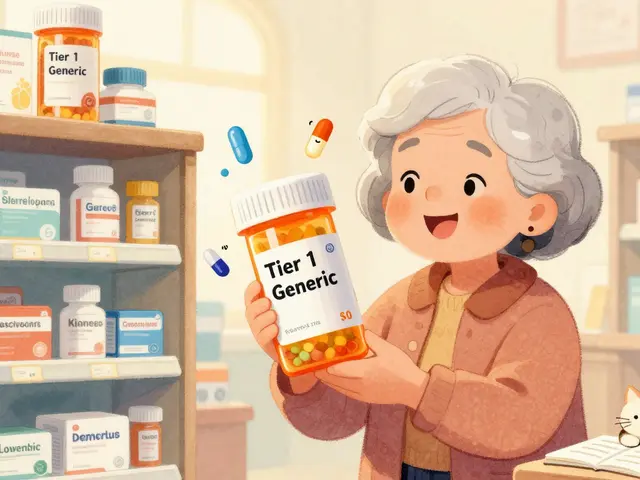
Psoriasis Management: Easy Ways to Keep Your Skin Calm
If you’ve wrestled with red patches for years, you know how frustrating flares can be. The good news? You don’t need a PhD to cut down the itch and scaling. Below are real‑world tips that fit into a busy life.
Topical Basics That Actually Work
The first line of defense is what you put on your skin. Over‑the‑counter creams with salicylic acid or coal tar help soften plaques. Prescription steroids are stronger, but use them only as doctors advise – long‑term overuse can thin the skin.
Moisturizing is non‑negotiable. Pick a thick ointment (petrolatum, lanolin) and apply right after a shower when your skin is still damp. This traps water and reduces cracking. If you forget, set a phone alarm – consistency beats occasional splurges.
Lifestyle Tweaks That Cut Flare‑Ups
Stress is a hidden trigger. Even short breathing breaks or a 10‑minute walk can lower cortisol levels that aggravate psoriasis. Try a simple habit: inhale for four seconds, hold two, exhale four, repeat five times before bed.
Diet matters too. Cut back on sugary drinks and processed snacks; they can fuel inflammation. Add omega‑3 rich foods like salmon, walnuts, or flaxseed to your meals – many people notice smoother skin within weeks.Alcohol can make plaques worse, especially in heavy drinkers. If you enjoy a few drinks, limit yourself to one standard serving and watch how your skin reacts.
Quit smoking if you can. Nicotine narrows blood vessels, making it harder for skin cells to repair themselves. Even cutting back by half often shows improvement.
Sunlight in moderation is helpful – UVB slows down the rapid cell turnover that causes plaques. Aim for 10‑15 minutes a day on a small area, but avoid sunburn; too much UV can raise skin cancer risk.
When to Call a Professional
If over‑the‑counter options don’t calm your flare in two weeks, schedule an appointment. A dermatologist may suggest biologic drugs that target specific immune pathways – these are powerful but require monitoring.
Any sign of infection (pus, sudden warmth, fever) means you need medical help right away. Psoriasis patches can become a breeding ground for bacteria if scratched too much.
Finally, keep a simple journal: note what you ate, stress levels, and any new products used. Patterns pop up quickly when you write them down, making it easier to pinpoint personal triggers.
Managing psoriasis isn’t about a magic cure; it’s about stacking small habits that add up. Stick with the basics – moisturize, watch stress, eat smart, and know when a doctor’s expertise is needed. Your skin will thank you.
-
29 May







